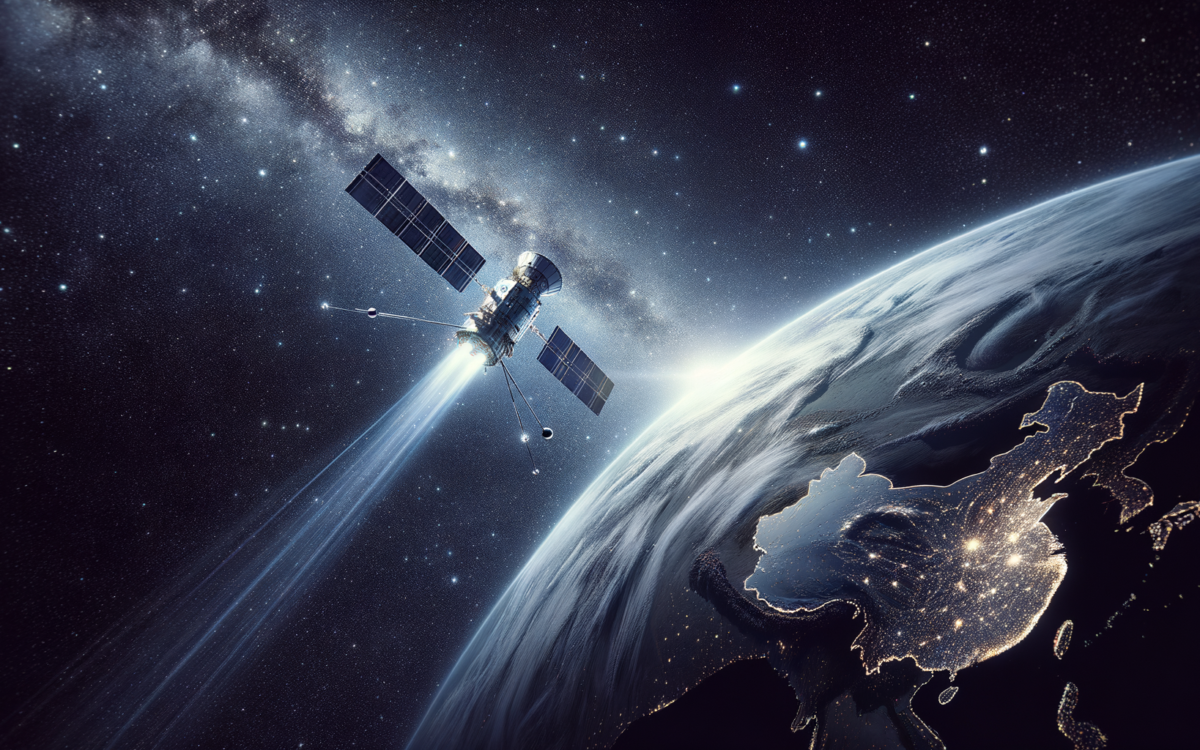The Cosmic Chess Game: Space Security and the Rising Tides of Competition
-
U.S. Space Command emphasizes space as a critical security domain with China rapidly enhancing its military space capabilities.
-
China’s significant increase in orbital presence and development of counterspace weapons highlighted as major concerns.
-
Russia’s pursuit of counterspace weaponry, including energy weapons and satellite jammers, also poses a significant threat.
The New Frontier: Navigating Space Security Challenges
In a universe where the stars are not just points of light but destinations, the orbit around Earth has become the latest arena of geopolitical rivalry. The head of the U.S. Space Command, Gen. Stephen Whiting, recently illuminated the Senate Armed Services Committee with a briefing that sounded like the plot of a sci-fi saga—only, it’s very much our reality.
Whiting painted space as an “expanding security challenge,” emphasizing that the cosmos beyond our atmosphere is now a battleground for technological and military supremacy. He underscored the importance of space in all-domain security activities, hinting at the intricate dance of satellites, signals, and the silent threats lurking in the expanse.
China’s Galactic Ambitions
The narrative of space security has a prominent player: China. Whiting outlined an almost cinematic surge in China’s space capabilities—growing at a “breathtaking pace.” By 2030, China aims to be a titan in almost all realms of space technology. Their strategy? To extend their military might not just across Earth but into the cosmos, enhancing their ability to conduct long-range operations with terrifying precision.
With over 359 satellites launched since 2018, China’s presence in orbit has more than tripled. This ballooning arsenal includes not just eyes and ears in the sky but potentially destructive counterspace weapons—giving Beijing the grim option to disrupt or destroy other nations’ space assets.
Russia’s Cosmic Arsenal
Not to be outdone, Russia, too, pursues its own suite of space-age weaponry. From directed energy weapons to satellite communications jammers, the arsenal seems ripped from the pages of a dystopian novel. These tools of cosmic contest are designed to threaten, disrupt, or outright annihilate space assets, signaling Russia’s intent to protect its extraterrestrial interests fiercely.
This high-stakes rivalry isn’t new; it echoes the tension of the Cold War era when space was the next frontier for showing off superpower strength. However, the evolved landscape of today’s threats brings a new level of urgency to space security, prompting the U.S. to sharpen its focus on defending the final frontier.
Defending the Cosmos
In response to these growing threats, the Space Command, resurrected as a dedicated entity during the Trump administration, is now more critical than ever. It stands as a guardian of peaceful exploration and use of space, adhering to the principles laid out in the 1967 Outer Space Treaty—which prohibits the stationing of weapons of mass destruction in space and champions the exploration of space for the benefit of all humanity.
Jon’s Take
As we navigate these celestial challenges, it’s essential to remember that space is not just a backdrop for geopolitical drama—it’s a shared heritage and potentially a shared future. The unfolding narrative of space security underscores the need for international cooperation and dialogue. Let’s not forget; the cosmos offers enough mystery and wonder for us all to explore, without turning it into a battlefield. After all, the truth isn’t just out there—it’s right here, in how we choose to navigate the infinite expanse together.
Original Article




